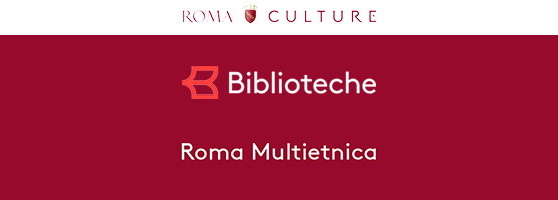Who we are
Multiethnic Rome website originates from the experience accumulated in the course of the project Rome Municipal libraries have worked at for years, a project of knowledge and communication within the diverse cultures that co-exist and interact in our country and in our city.These exchanges gave birth to three editions of the Guide to Multicultural Rome published by Villaggio Editoriale: The Invisible City (1998), Multi-ethnic Rome. A guide to the invisible city (2000) and the most recent Multi-ethnic Rome. A guide to the intercultural city (2008), available in all newsagents and bookshops in Rome.
The guide originates from the collaboration between specialists and Italian and foreign intercultural mediators, people who carry multiple worlds within them, who are able to provide a link between two cultures.
Not only the website gives information and updates on the ever-changing multi-ethnic reality of Rome, it also displays multicultural and intercultural events in Rome, it suggests bibliographic paths and books about literatures from the South of the world and it offers relevant links to interculture, immigration and global areas where the new migrant citizens live.
Contact us
To keep data and information up-to-date we need a contribution from everybody. Please write and contact us with regard to any useful piece of information:Multi-ethnic Rome (Roma Multietnica) Editorial Staff:
Ufficio Intercultura – Istituzione Biblioteche
Via Zanardelli, 34
00186 Roma
tel. 06 45430264
info@romamultietnica.it
Libraries in a foreign language
New sections in the two main languages spoken in the biggest foreign communities living in Rome have been added to the municipal libraries.The 15 libraries that joined the project have been chosen through the analysis of the data provided by the Council of Rome in relation to the presence of foreigners in the different boroughs. Sections have already been activated in Spanish, Chinese, Albanian, Arab, Romanian, Polish, Russian, Persian, Hurdu, Bangladeshi, Ukranian sections have already been activated and new sections are due to open soon (Albanian, tagalog)
‘Libraries in a Foreign Language’ project was born with the purpose of re-thinking bilingualism in terms of personal value and cultural richness in order to preserve the language and culture of origins. The books in the diifferent sections have been selected by foreign mediators and literature experts considering the main aim of the project; therefore they address an audience made mostly of poorly educated working adults, and on the other hand, young readers, children and teenagers who arrived to Italy in their early years or belong to the second generation. Bibliographies include national and international fiction for children and teenagers; classics and contemporary novels from every country represented in the sections; international and italian best-sellers; various essays (history, economy, art, medicine, cooking etc.) and Italy travel guides. Grammar books and dictionaries in the languages spoken by different communities are also available to help the second generations to come closer to the language of their parents.The multi-language shelf becomes a fundamental source of information for young or older, temporary or longterm, working or studying foreign people who live in Rome, and the libraries establish themselves as a definitive benchmark in the rediscovery of native cultures and languages. Thanks to this project, the libraries enrich themselves not only with new books but also with new readers.
The creation of foreign language sections required long and accurate research: after the analysis of data regarding the presence of foreigners in the different councils, and the editing of various bibliographies, mediators and experts took extra-care in transliterating non-latin alphabets, a necessary operation in order to file books in the digital and traditional archives of the Libraries. What followed was a careful work of promotion and advertisment of the new language sections, through newspaper published by the communities that had embraced the project, flyers and opening parties organised by the Office of Interculture in collaboration with the libraries and cultural mediators. Jump to the end of each feature for the photogallery of the event.
Italian language in the libraries
To complement the service offered by the Libraries to foreign citizens living in Rome, the Office of Interculture promotes the ‘Italian language in the Libraries’ project: it is made up of free Italian learning laboratories that implement the language learning experience in a series of parallel paths such as screenings, guided visits to the library and to the City, help-desk offering guidance to the services offered to citizens by the Borough Councils. ‘Italian language in the libraries’ was born with the purpose of diversifying and improving the educational programme carried on by several associations and institutions teaching Italian to foreigners in Rome: it has been specifically tailored for a) disadvantaged groups in terms of social and cultural integration, the disadvantage referring to the difficulties in learning Italian, due to the speakers’ native language distance from the Italian lexical and writing systems (like Chinese and Arabic), or b) those social groups (such as, for instance, Arab women) that for cultural reasons have less chances of attending the regular Italian courses offered by the Permanent Territorial Centres and by the associations operating in the territory of Rome.By the end of the course, students will be able to take the CeLI exam in the libraries in order to obtain the certificate of Italian language issued by Perugia University.Below, the list of the Libraries that have already activated courses of Italian as a foreign language and relevant times.
Multi-ethnic Rome events archive
The office of Interculture, Multi-ethnic Rome editorial staff, in collaboration with the diverse cultural communities and intercultural associations living in the City, promotes periodically a series of events held in the Libraries.


